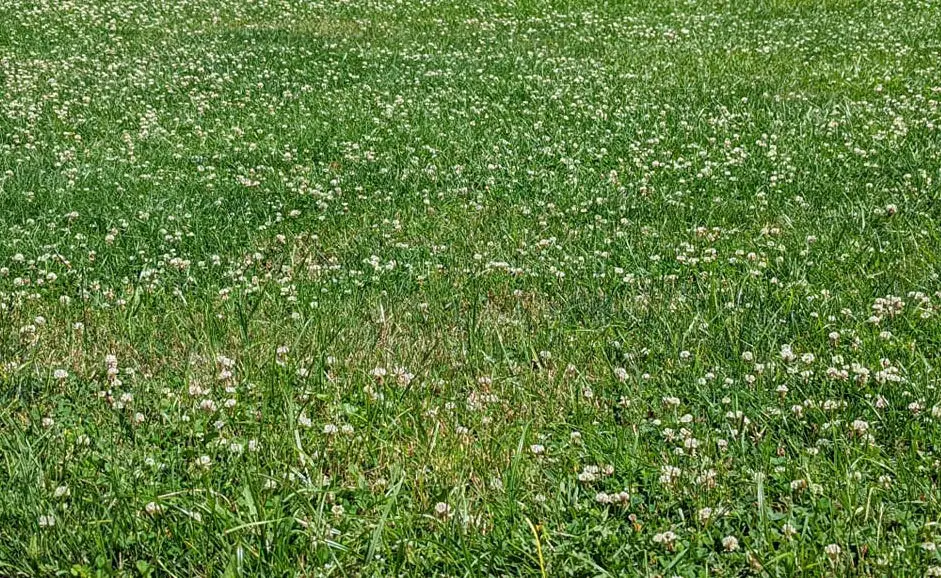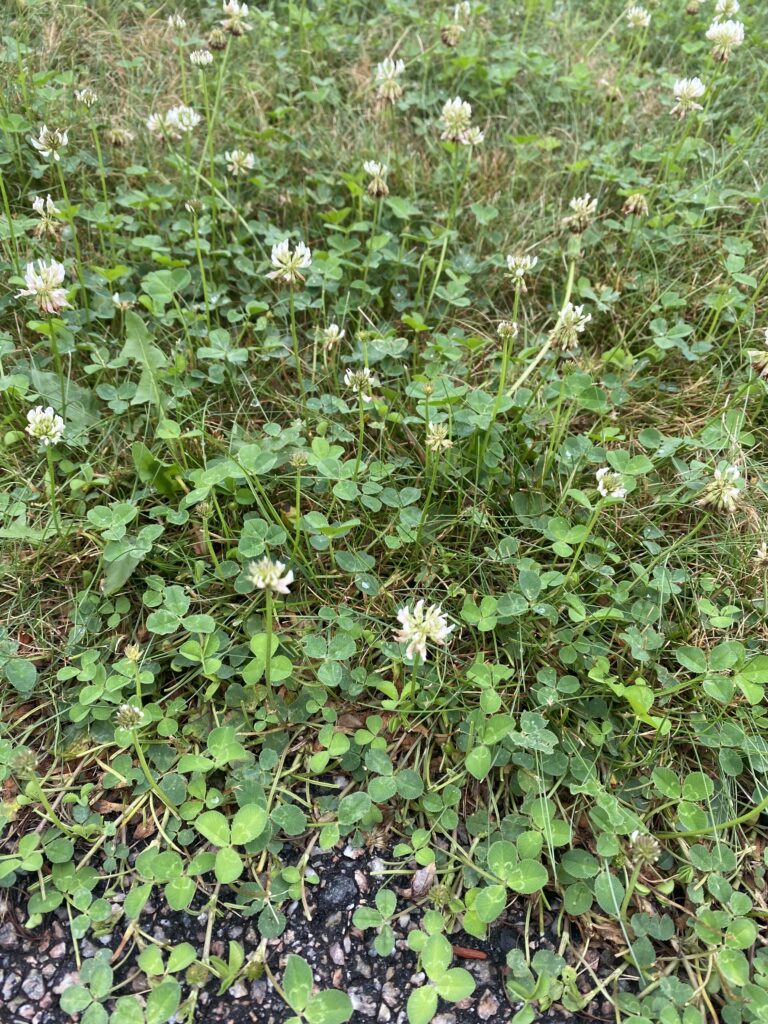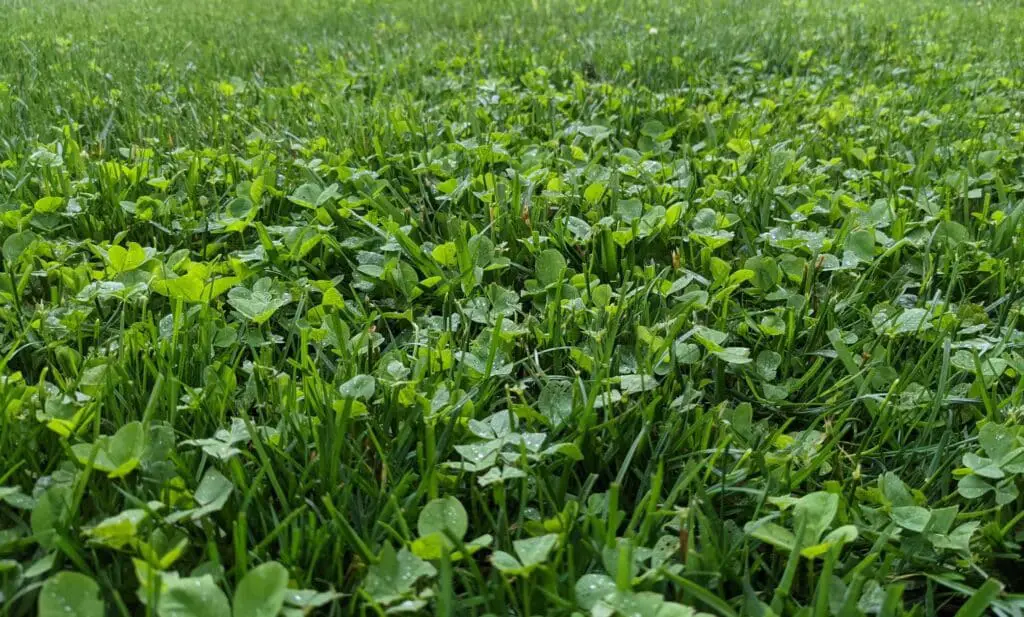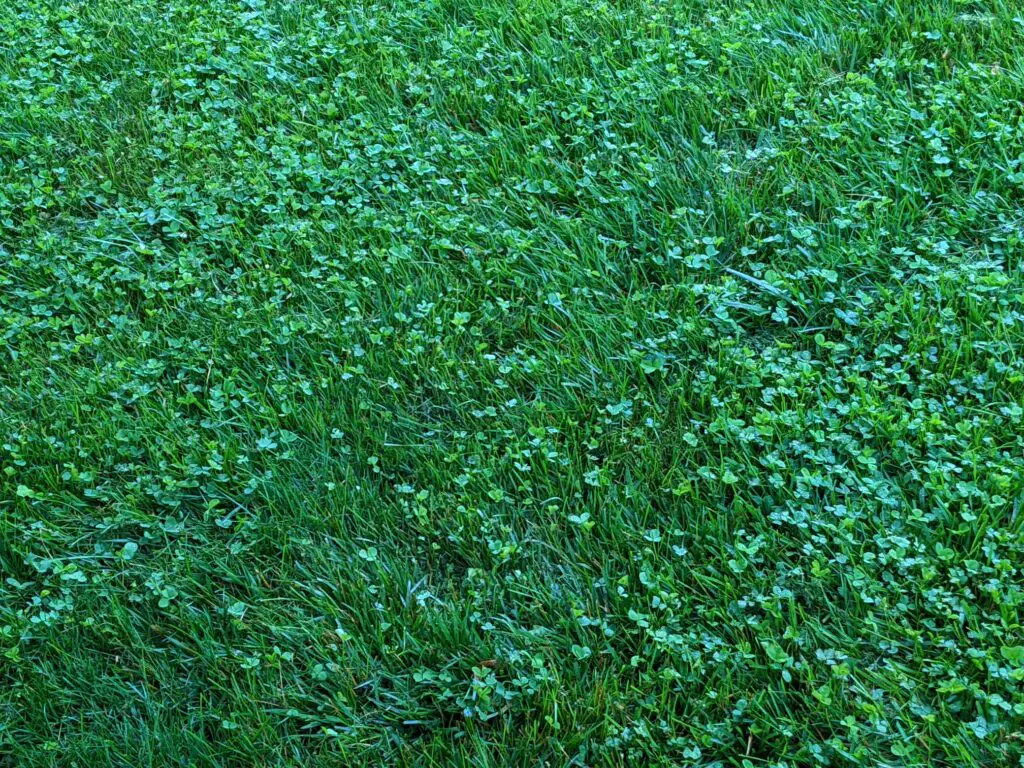Spend a few minutes watching landscaping videos on TikTok, and you’re bound to come across at least one video touting the benefits of a clover lawn. The buzz about clover lawns is growing nearly as quickly as the unique alternative to grass itself, but the excitement about going clover isn’t just hype. A clover yard provides many benefits for homeowners.
In this guide, we explore different types of clover, examine the benefits of planting clover seeds, and answer common questions regarding the switch to a clover lawn. Read on to get the facts you need to know, so you can decide if a clover yard is right for you.
Types of clover for lawns
Although most people think of a clover lawn as one thing, you can choose from different clover species for your yard. The most popular clover seed options include white clover, red clover, and microclover.
White clover
Also called Dutch clover, white clover is the most popular and well-known in the US. It typically gets to be 4 to 8 inches tall and produces attractive white flowers.


Red clover
Red clover blooms have a purplish color that stands out against the green leaves and stems of the plants. It gets taller than white clover, usually growing to around 6 to 24 inches.
Microclover
A newer option, microclover produces fewer flowers than red and white clover varieties. When mature, it is around 4 to 6 inches tall. Because it doesn’t tend to form clumps, it is a good choice for those who want to mix clover and grass rather than having a whole lawn of either type.
Keep in mind that you can also purchase mixed clover varieties that contain Dutch white clover and other species.


Benefits of a clover lawn
The popularity of clover lawns comes from the many benefits compared to regular lawns with grass. The following are some of the benefits of clover.
Less Lawn Maintenance
Compared to a traditional lawn, clover requires much less maintenance. It can save you time because it:
- Needs little to no fertilizer to stay green
- Requires very little water
- Cuts down on the need for mowing
- Doesn’t need to be aerated
- Naturally resists the effects of insect pests and disease, so there is no need for herbicides or pesticides
Cost
Clover may also save you money compared to the cost of grass because:
- You won’t have to pay for gasoline to operate your mower or tractor
- You can skip fertilizers and aeration services
- Overseeding with clover seed is cheaper than grass seed
- Clover spreads easily and can fill in bare areas mostly on its own
Rate of Growth
If you don’t have an existing lawn, clover can help you get your yard looking green much more quickly. Because clover usually grows more quickly and easily than grass lawns, you’ll have less wait time.
Eco-Friendliness
Those concerned about the effects that synthetic pesticides and herbicides have on the environment may prefer clover lawns. In addition, clover usually won’t need watering, making it a good way to conserve water in drought-prone areas.
Pollinators
The fragrant flowers that red and white clover produce can attract bees and other pollinators to your yard. Not only does this give you the opportunity to watch these creatures in action, but it may also help other plants in your landscaping and garden thrive.
The Look
Some people simply prefer the look of clover versus grass. Because clover is sun and shade tolerant, it is more likely to grow evenly in every part of the yard. Plus, clover is more likely to stay green year-round.
Clover lawn FAQs
If you still have questions about switching to a clover lawn, find the answers below.
Is a clover lawn a good idea?
For many people, the benefits of planting clover are appealing. To decide whether a clover lawn is best for you, consider the benefits and weigh them against possible drawbacks. For example, if someone in your household is allergic to bees, you may not want to choose clover.
Is clover a better lawn than a grass lawn?
Whether clover is better than traditional grass is a matter of personal opinion. Some people find that the lack of maintenance, increased resistance and the low cost of clover make it better than a grass lawn. However, some people prefer the appearance of traditional grass.
Is clover mixed with grass seed?
Yes, you can find seed blends that enable you to plant clover seed at the same time as grass seed to create a mixed lawn. Usually, these mixes contain much more grass seed than clover seed.
Will a clover lawn spread to neighbors?
Clover grows very easily, so there is a chance that it could spread to neighbors’ lawns. However, most grasses will prevent clover spread if they’re properly fertilized and maintained to keep them healthy.
How long do clover lawns last?
You will likely need to plant clover seeds once every two to three years. This is a much shorter life span than most grasses, which can last for 30 to 40 years in a well-maintained lawn.
Is clover seed good for your lawn?
Yes, clover seed is good for lawns. It naturally imparts nutrients to the soil and attracts pollinators that can benefit nearby plants.
How hard is it to plant clover?
Most people find that it is not hard to plant clover. Typically, clover grows more easily than most grasses.

I want to top seed with clover on an established lawn. It will have been thatched as well as a crab grass premergent will have been applied. Will it be damaged by the premergent?
Hi Mary. I don’t see clover labeled as a targeted weed on Prodiamine or Dithiopyr so it might be ok.